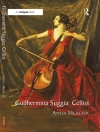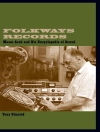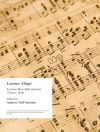This handbook tackles the understudied relationship between music and comedy cinema by analysing the nature, perception, and function of music from fresh perspectives. Its approach is not only multidisciplinary, but also interdisciplinary in its close examination of how music and other cinematic devices interact in the creation of comedy. The volume addresses gender representation, national identities, stylistic strategies, and employs inputs from cultural studies, musicology, music theory, psychology, cognitivism, semiotics, formal and stylistic film analysis, and psychoanalysis. It is organised in four sections: general introductions, theoretical investigations, music and comedy within national cinemas, and exemplary case studies of films or authors.
Tabla de materias
1. From Dionysia to Hollywood: An Introduction to Comedy’s Long (and Bumpy) Road.- 2. Humorous Techniques in Comedic Narratives.- 3. Scoring Laughs: A Meditation on Music and Mirth.- 4. Audiovisual Parallelism and Counterpoint as Strategies of Musical Humour.- 5. The Audiovisual Architecture of Musical Pauses, Punchlines, and Jablines: Paddington’s Punctuation.- 6. The Self-Aware Soundtrack: Film Music as a Metaleptic Device in Comedy Film.- 7. ‘She’s a babe… SCHWING!’: Feminine Spectacle and Parody in Comedy Film Scoring.- 8. Pop-Rock Authenticity, Intertextuality, and Humour in the Films of Adam Mc Kay and Will Ferrell.- 9. ‘The Man for His Time and Place.’ Identity, Musical Comedy, and the Compiled Soundtrack in The Big Lebowski.- 10. Mozart in the Kitchen. Musical Reference and the Crisis of Action in Last Action Hero.- 11. ‘The Music Shouldn’t Acknowledge Any of the Jokes.’ Audiovisual Incongruence and the Functions of Music in Contemporary Dark Comedy Films.- 12.Seriously Funny Music: The Use of Serious Music for Comedic Effect.- 13. DJ, Interrupted: Delivering Punchlines with a Record Scratch.- 14. On Being ‘In the Know’: When Classical Music Gets Played for Laughs.- 15. Carry On Regardless: The Musical Humour of Eric Rogers.- 16. Musical-Comedic Stereotypes and Cinema. A Case Study of Irish-themed Features, 1946-1952.- 17. The Paladin of Italian Comedy. Totò and Music.- 18. Mocking Sound: Das Kabinett des Dr. Larifari (1930) as a Parody of Early German Sound Film.- 19. ‘Hubert, you are sooo… French!’: Musical Pastiche and Parody in Michel Hazanavicius’ Espionage Comedy Films OSS 117 (2006, 2009).- 20. From Imperio to Lola: Mapping Comedy in the Tradition of Spanish Folkloric Musicals (1930-1960).- 21. We Can Sing and Laugh Like Children: Music as Comedy in the Film Musicals of Grigorij Aleksandrov and Isaak Dunaevskij.- 22. Playing with Borders. Film Music and Social Criticism in Swedish Comedies by Hasse and Tage.- 23. Harassing Hogwash Scored with Happy Hardcore: The Ruthless Humour of the Dutch New Kids Films.- 24. On and Beyond Mickey-Mousing: Revisiting Yuan Muzhi’s Scenes of City Life (1935).- 25. Overview of Music in Nollywood Comedy Cinema.- 26. Comedy and Parody in the Songs of the Hindi Cinema.- 27. Parody, Commentary, Subversion: Music in Japanese Comedy Cinema.- 28. Music for Tricksters and Music as Trickster in the Classical Hollywood Score.- 29. The Joke’s on You: Puns and Punchlines in the Music of the Marx Brothers.- 30. ‘Valse Elegante’: The Comedic Film Music of Charlie Chaplin.- 31. Jacques Tati and the Musical Construction of the Comedic.- 32. Music for Low Comedy and High Romance: Malcolm Arnold’s Score for Hobson’s Choice (David Lean, 1954).- 33. The New King of Comedy: Theodore Shapiro and the New Millennial Comedy Score.- 34. ‘Cut it Out, Cricket’: Affective Management through Diegetic Music and Song in Howard Hawks’s Comedies and Comic Dramas.- 35. Music, Satire, and Smutna Comedy in the Zbigniew Preisner-Krzysztof Kieślowski Collaborations.- 36. Louis de Funès as Gendarme: Comic Incongruity and Self-Reflexive Music in the Golden Age of French Comedies (1964–80).- 37. Songs and Scores in the Films of Mel Brooks: The Collaboration with John Morris.- 38. Taking Mancini’s Comedy Scores Seriously.- 39. Ennio Morricone’s Music for La Cage aux folles (1978).- 40. Irony, Comic, and Humour. The Comedic Sides of John Williams.- 41. Jocular Juxtapositions, Parody, and Ludicrous Lyrics. Music in Monty Python’s Comedy Films.- 42. Music and Comedy in the Films of Woody Allen.
Sobre el autor
Emilio Audissino is Associate Professor at Linnaeus University, Sweden. His research interests are film and television history; audio-visual style and techniques; screenwriting; neo formalist film analysis; comedy; horror; and sound and music in media. Notably, he is the author of The Film Music of John Williams. Reviving Hollywood’s Classical Style (2021/2014) and of Film/Music Analysis. A Film Studies Approach (2017).
Emile Wennekes is Chair Professor of Musicology: Music and Media at Utrecht University, The Netherlands. He is the author of multiple books and edited volumes, as well as some hundred scholarly book chapters, articles, and conference presentations. Among his most recent publications are two co-edited books entitled Advances in Speech and Music Technology (2021; 2023 – with a.o. Anupam Biswas). Wennekes chairs the Study Group Music and Media (Ma M) of the International Musicological Society. Previously, Audissino and Wennekes edited the volume Cinema Changes: Incorporation of Jazz in the Film Soundtrack (2019).












